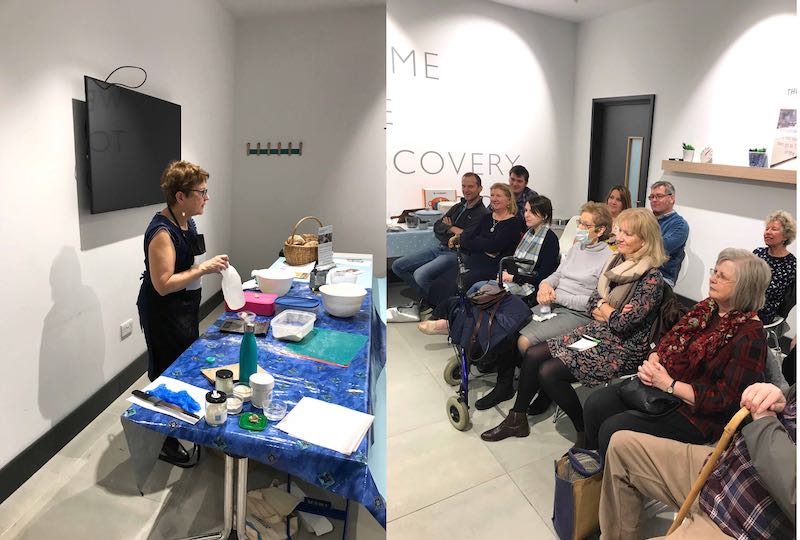
All over the United Kingdom (and further afield too) bakers spread the real bread message during Real Bread Week. It is not just about how good real bread is to eat, but how it can improve your diet and mental health. Making bread is good for you.
Dusting off your bread machine
Could this be the time to get out that hidden bread machine? According to Recycle Your Electricals who had research in 2023 carried out on their behalf, there might be around 1.4 million bread machines going unused in UK homes!
Bread machines could potentially be seen as
- A solution for those seeking convenience and control over ingredients.
- Requiring minimal skill, with the machine handling most of the work.
- An affordable and accessible way to enjoy Real Bread, especially if a second hand machine is sourced. A quick search on Ebay revealed close to 300 used machines available!
- A means for those less able to make bread

Mental Health
Breadmaking can be good for your mental health in many ways:
Mindfulness and sensory engagement: Kneading dough by hand is a repetitive, sensory-rich experience that helps focus the mind and reduce stress.
Sense of accomplishment: Witnessing the transformation of simple ingredients into a delicious loaf of bread can be incredibly rewarding. This sense of accomplishment, regardless of the method used, can boost self-esteem and confidence.
Creativity and control: Breadmaking allows for creativity, whether it’s experimenting with different ingredients or shaping the dough into unique forms. This creative expression can be a healthy outlet for emotions and a way to feel in control.
Community and connection: Sharing homemade bread with loved ones fosters connection and belonging. Additionally, joining bread-baking communities or classes can provide social interaction and support.
Reduced stress and anxiety: Repetitive, rhythmic activities like kneading dough can have a calming effect, reducing stress hormones and promoting relaxation.
Reduced anxiety over ingredients: Making your own bread allows you to control the ingredients, which can be reassuring for those with dietary restrictions or concerns about additives.
Getting out and about with bread
It’s always fun to spread the Real Bread message. Check out what other bakers are up to.

Gloucester College, Cheltenham
Myself, fellow Dilly Boase, Douglas Muir and Dr Mary Kelly headed to the hospitality department at Gloucester College in Cheltenham.
Here we taught breadmaking skills to 24 hospitality students aged 17 to 19. Despite already having done a full days training, the students really got stuck into the session as we mixed, kneaded and shaped and baked dough. We loved their energy and searching questions. We hope that there are some future bakers amongst them! Renark Cousins, their tutor commented:
The students loved the day. I must thank you very much for the efforts your team made. The students actually learned a lot from the day and have reminded me of what they had learnt.
I particularly enjoyed working as a team with Dilly, Douglas and Mary prepping beforehand. Douglas brought 10 kilos of dough and we made a similar amount in advance for the students to work with. I realised it has been quite a while since I have worked with others and how much I miss it!

Real Bread Campaign
The Real Bread Campaign website is where to find free recipes, as well as places to buy additive-free bread from more than 600 bakeries that have added their details to the Real Bread Map. The map also includes places to learn to make Real Bread and while out shopping people can look for The Real Bread Loaf Mark.

